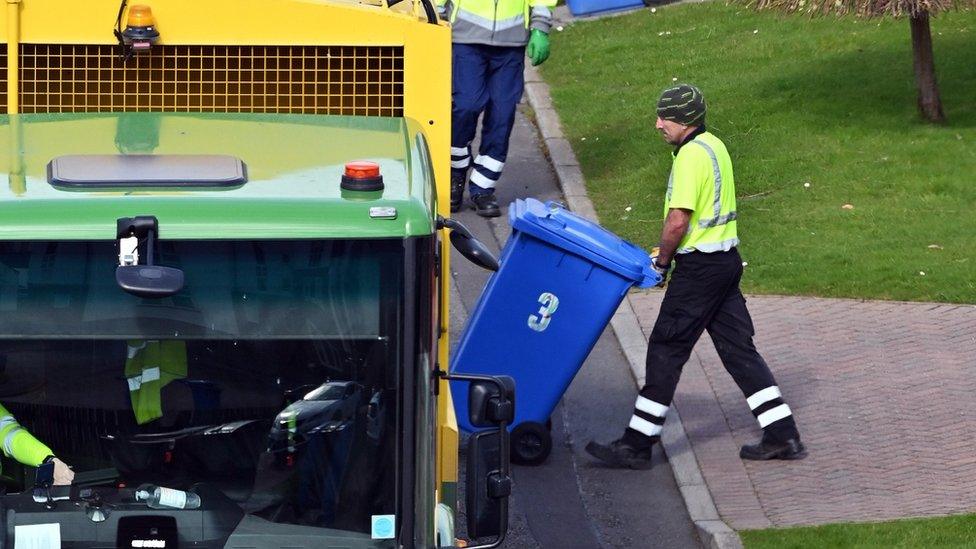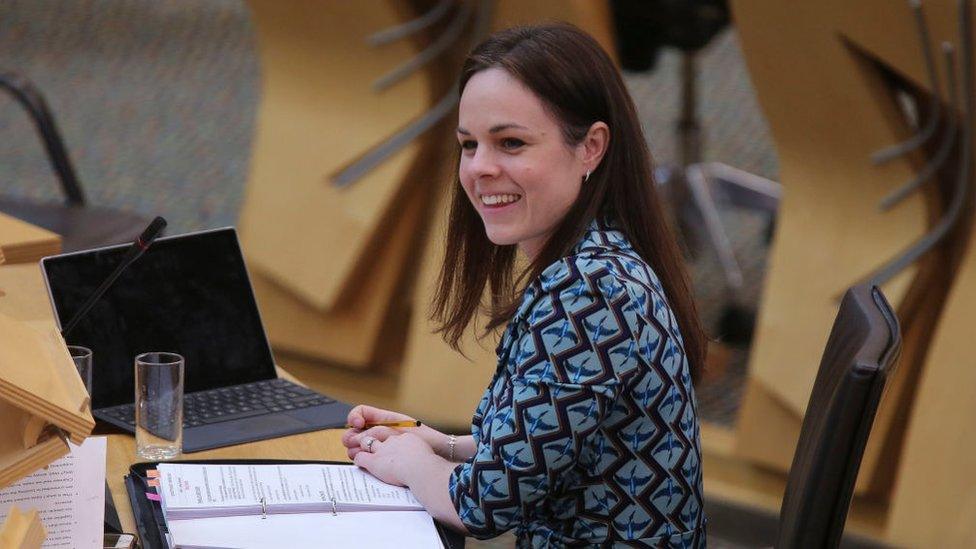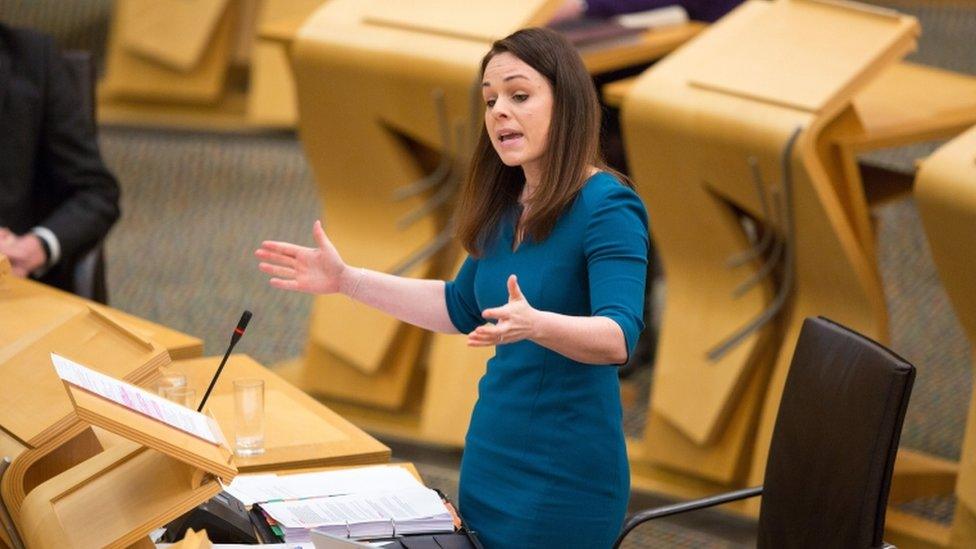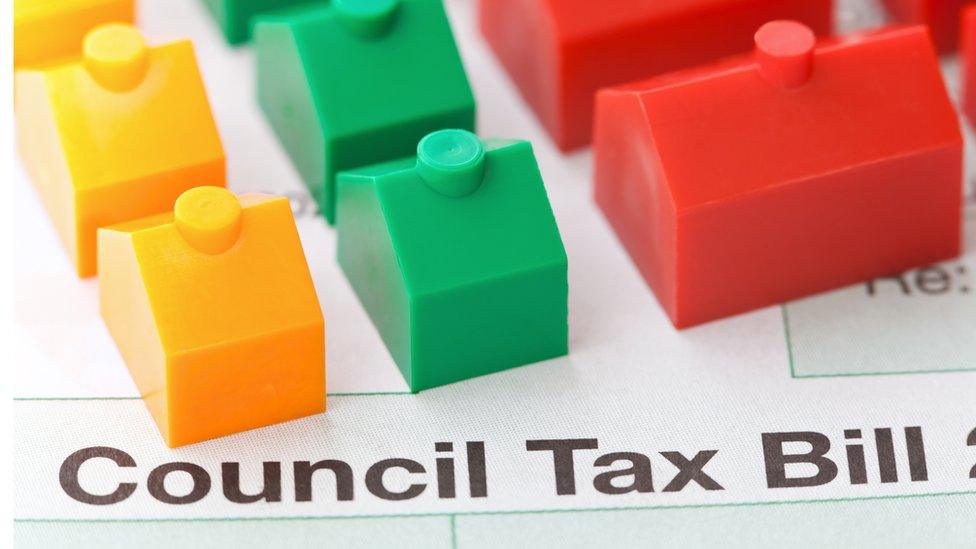All Scottish councils agree to tax freeze
- Published
- comments

All of Scotland's 32 local authorities have frozen council tax rates at last year's levels.
The Scottish government offered councils incentives in return for not raising the cost of the bills.
Glasgow and Stirling were the last authorities to consider council tax levels when they set their 2021/22 budgets on Thursday.
Other councils had been through that process since last month, with all agreeing to a freeze.
Local authorities are to receive a cash equivalent of a 3% council tax increase in return for not putting up levels.
The move forms part of the Scottish government's spending plans for the coming year, which Finance Secretary Kate Forbes said were aimed at striking a balance between raising revenue to pay for public services and helping Scotland recover from the Covid pandemic.
Ms Forbes said she was pleased the freeze had been agreed by all the councils.
She said: "With people facing unprecedented challenges and extra pressures, now is a time to work together to provide stability and certainty.
"I am pleased that councils have taken advantage of this additional support and have protected household finances. This will make a real difference to people across Scotland."

Points to note: Band D is highlighted above as the average council tax bill for householders in Scotland. The Band D figures do not include water and sewerage charges. Therefore, the final household bill will be bigger.


It will come as a relief to the Scottish government when they are finally able to confirm that council tax bills will not rise anywhere in Scotland this year.
The SNP believes it will be a popular measure at a time when some families are facing financial pressures because of the pandemic.
So it will be a relief for the government - but no real surprise.
If any council were to decide to put up the council tax, the rise would need to be significant to be worthwhile. This is because they would have lost out on some government funding if they put up bills.
The Scottish government will be hopeful that a new council tax freeze proves as popular with the public as they think the first one did.
Between 2007 and 2017 the basic council tax rate didn't rise anywhere in Scotland. Since then councils have been able to put it up within agreed limits, though it's worth noting that some still opted for lower rises and even freezes.
The basic argument between some in local government and Holyrood is not over whether voters will welcome another freeze - most accept they will. The argument is over whether councils have enough money overall and if they are too dependent on government cash.
Most council income either comes directly from the government or, like council tax, is heavily influenced by it.
Councils had already been given extra government money to cope with the pandemic but have also lost income - sports centres have been closed, facilities cannot be hired out and they have lost income from car parking.
The underlying issue is whether the council tax itself is fit for purpose and whether councils should have a broader range of ways to raise finances.
Fourteen years ago when the SNP first took control of Holyrood, a council tax freeze was meant to be a temporary measure while a way to replace the council tax was found.
Finding an alternative or finding palatable ways of giving councils more financial independence from central government is easier said than done.
- Published8 March 2021

- Published29 January 2021
- Published28 January 2021

- Published2 January 2021
